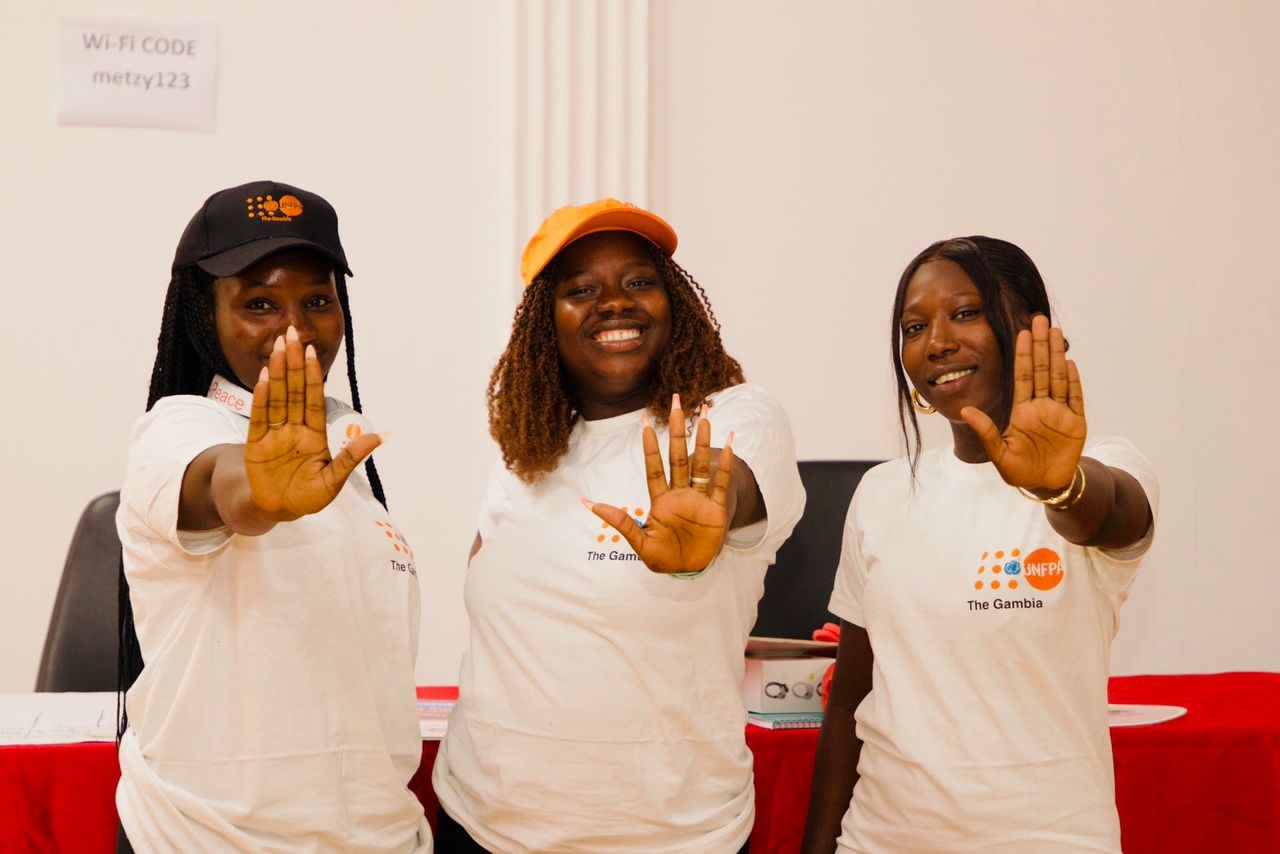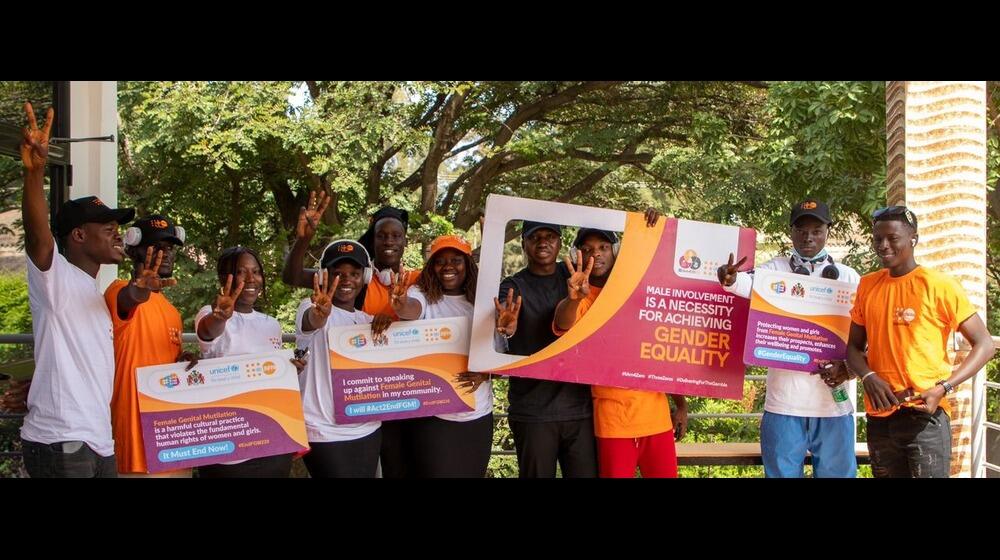Gender-Based Violence (GBV) especially Female Genital Mutilation (FGM) is a pervasive and deeply rooted practice that continue to hurt the lives and dignity of women and girls. As societies grapple with the widespread impact of these disturbing practices, the imperative for concerted, collective efforts to eradicate GBV and FGM grows increasingly urgent.
To ensure no one is left behind in this crucial fight, the United Nations Population Fund The Gambia has taken a huge step by engaging social media influencers in a comprehensive training program. This event convened on November 21st 2023 was meant to enhance the understanding of social media influencers on GBV especially FGM in a bid to harness their platforms to amplify messages on the issues.
The pivotal role influencers play in shaping public opinion.
Training social media influencers on Female Genital Mutilation (FGM) is crucial because of their huge following and far-reaching impact. Influencers possess the power to educate, challenge societal norms, and influence attitudes. By equipping them with knowledge about the dangers and consequences of FGM, they can amplify awareness, dismantle myths, and encourage dialogue on platforms where millions engage. Their voice can spark crucial conversations, leading to cultural shifts and ultimately aiding in the fight against this harmful practice.
Recognizing this pivotal role, UNFPA initiated this specialized training to empower influencers with knowledge and tools necessary to advocate against GBV and FGM.

During the intensive training sessions, influencers received expert guidance on understanding the complexities of GBV and FGM, the importance of accurate messaging, and the ethical responsibilities associated with addressing these sensitive topics on social media platforms.
In an interview, Bakary Mankajang, one of the participants who holds a respectable following on the social media platform, TikTok, acknowledged the importance of the training. He said:
“From the training, we have realized that the onus is on us to desist from reporting or commenting on issues that may cause distress to women and girls.
Personally, I recommend that we continue to be sensitized so that we can use our platforms to advocate for an end to gender based violence especially FGM. This should be done across the country.”
The training opened a platform for crucial conversations on GBV and FGM with many of the female participants narrating their ordeals with the harmful practices. One of the influencers Tida Jobe narrated “I used to be shamed when I was a little girl because I am not cut; to a point that I badly wanted to be cut like the other girls just so I can fit in.”
"This training has been eye-opening. It's not just about sharing content; it's about using our platforms responsibly to bring about real change. I feel more equipped to engage my audience in meaningful conversations now." Tida Jobe added.
UNFPA plans to continue supporting and collaborating with these influencers as they leverage their online presence to raise awareness, promote dialogue, and advocate for the eradication of GBV and FGM in The Gambia.
As these influencers return to their digital spaces armed with knowledge and a newfound commitment, the hope is to spark a ripple effect, igniting conversations that lead to tangible actions and societal transformation.
A similar capacity building exercise was also held for editors and journalists to improve their knowledge and skills in reporting on GBV/FGM more ethically and sensitively.
Media Contact:
Fatoumatta Cham, Program Analyst, Communications (fcham@unfpa.org)


